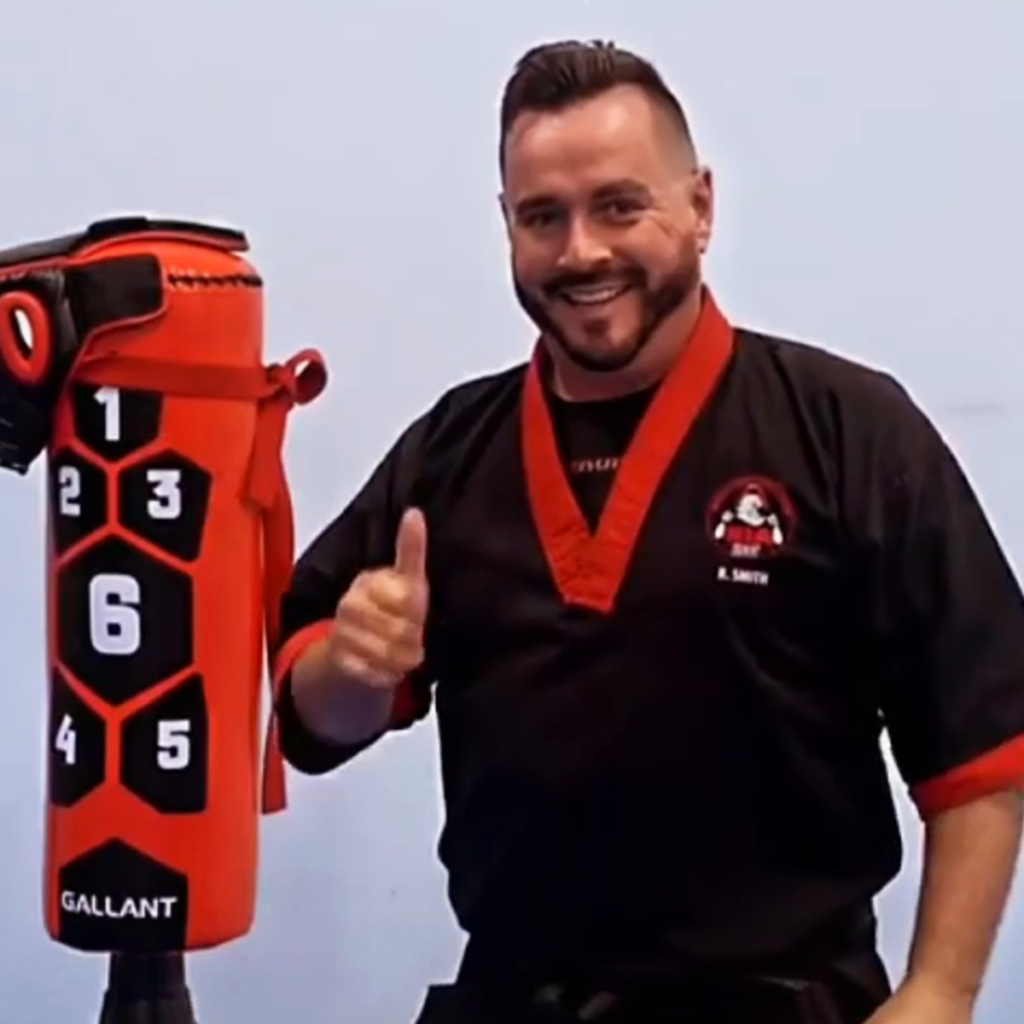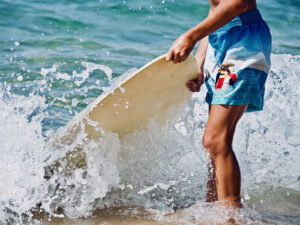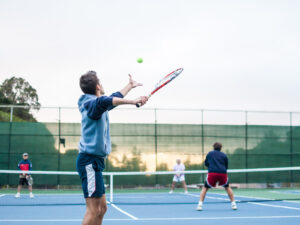Sensei Rich: Sport Nunchaku

More than two decades have passed since Rich Smith started travelling Europe to learn everything he could about martial arts.
It was in 1999 in Switzerland when he met a guy that would introduce him to nunchaku, a form of traditional martial arts that hails from Okinawa, an island off the coast of Japan.
The world was a very different place to what it is now, so learning the sport wasn’t easy. There was no internet that Rich could use to watch videos and self-teach, nor mobile phones that he could use to record training sessions while out in Europe to help his practice at home.
Instead Rich would travel to back and forth from Switzerland to meet with Sensei Marc Brémart, staying for anywhere from four days to two months with training sessions lasting for several hours. He didn’t have much money so would eat buttered pasta with a little bit of cheese for lunch or dinner, eating right outside the dojo.
His instructor also didn’t speak English, so Rich had to rely on the French he was taught in school to learn nunchaku while slowly becoming more fluent in the language.
Now an instructor himself, Sensei Rich is the founder and head of Sport Nunchaku, formed in 2005, and vice-president of the Nunchaku International Academy, aiming to make it possible for people around the world to learn nunchaku.
He also supports Fighting for Autism which promotes martial arts as a great way for autistic people to learn and grow within sport.
“I would describe it as the coolest martial art,” Sensei Rich said. “People can learn it if they are close to one of our schools, or online, which is great because people all over the world can get involved.
“It suits some people with autism because it is very tactile, you aren’t concentrating somewhere else. You are using your hands all the time to make movements.
“But whether they have autism or not, it gives people confidence straight away because after just one class they find they can do it. When they know that, it gives people, young or old, a massive enjoyment factor and inspires them to learn more. It improves self-esteem and self-awareness.
“It’s learning, persevering, and then achieving. We are a school, not a club, and it’s because you go through all the stages and belts, like you go to school, college and university. That structure is great and very good for people with autism because they know where they are.
“One 17-year-old who is at one of our schools likes it because I’m very clear with everything. He came to me and couldn’t lift his head up, had no confidence and took offence to things, and now he is a lot happier, joking all the time, trying his hardest to do it and he gets it.
“He’s done competitions and has his yellow belt, looking for his orange belt. Sometimes he takes a little bit longer than others but he is just connecting all the dots.”
Sensei Rich has been training in martial arts for 44 years and in 2019, Paris, became the first World Nunchaku champion from the UK. He also has 28 years of teaching experience and has sought out specially made nunchakus made out of foam and connected via string to support safe training for beginners.
Then, once involved, there are many ways that people can continue their journey.
“You have combat nunchaku where you fight against another person and get points for hitting them, like you would taekwondo, and there’s also pre-combat where you train for combat on a bag. There’s also freestyle nunchaku where you do the sport to music, and then katas [performing choreographed movement patterns].
“You want to take your time to learn it, because then it will stick. It sticks with some of my students with autism, we were talking about refereeing the other day – if you want to be good at something you’ve got to apply it.
“We will be running the World Championships over the next year, and I’ve been going to different cities and developing it in other martial arts schools. Hopefully we can get Sport Nunchaku in the Olympics as a combat sport and a freestyle sport, and I’ll be the one flying the flag for Britain.
“The next 10 years are going to be fantastic. I’m looking forward to the franchises that are going to develop up and down the country.”
As nunchaku continues to grow in the UK and around the world, Sensei Rich will not forget his introduction to the sport, as well as the 24 martial arts he has studied over the last two decades that have shaped him to be the person he is today.
“You’ve got to battle, life is a battle, and it gives you more character. It makes me want to push and develop all my students, but it also gave me empathy for others as a coach and instructor. It was life-changing.
“It’s all about the person, and martial arts is amazing for people because it’s so structured and delivered in a controlled manner, and you develop that inner confidence that comes out naturally rather than through inflated ego.
“People with autism are fighting in the same category as non-autistic people; it’s really important to give everybody opportunity. Fighting for Autism is a fantastic thing and I put it on my website with pride, and Spautism are doing great work as well.
“It all helps to raise awareness, and helps people, which is something I’ll never stop doing.”


